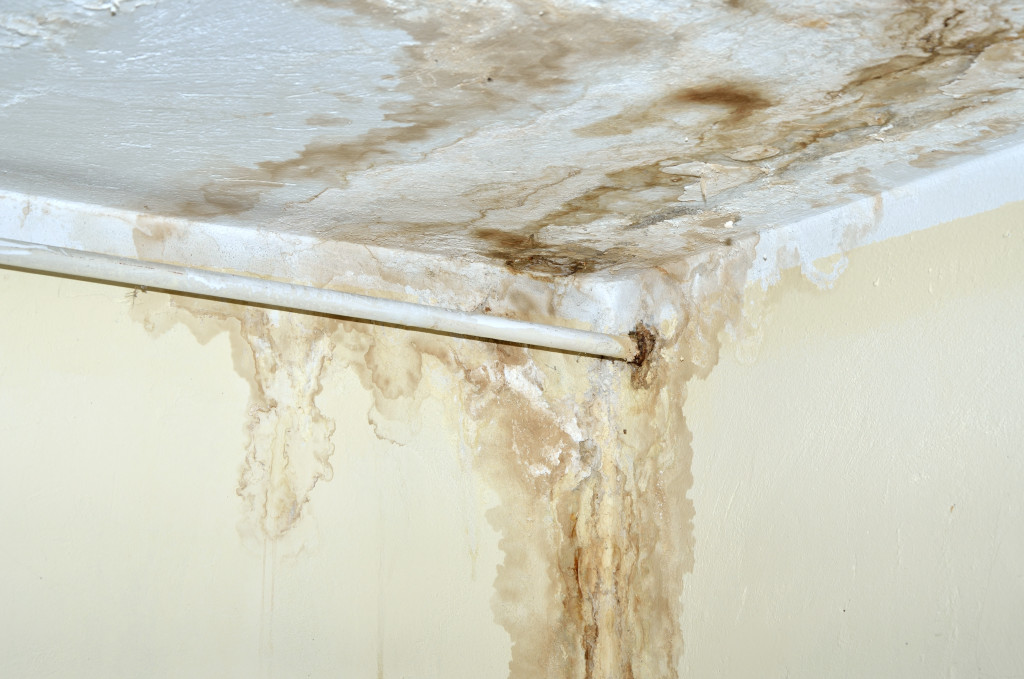- Moisture can accumulate in homes due to the climate and lack of proper ventilation.
- Mold and mildew growth, structural damage, insect infestations, musty odors, and reduced curb appeal can significantly reduce a home’s value.
- Installing moldings, dehumidifiers, checking roofs and gutters regularly, and insulating the house are all effective ways to reduce moisture.
- Keeping your home dry and addressing any moisture issues promptly is essential for preserving its value.
- Properly ventilating damp areas, using a dehumidifier, and removing debris from roofs are all measures that should be taken to prevent moisture buildup.
As a home seller, you want to ensure you get the highest possible price for your property. Unfortunately, some things can lower their value, and one of them is moisture. Moisture is a common problem in many homes, resulting in costly damages and repairs. Here’s what you need to know about moisture, how it can reduce your home cost, and how to prevent it.
The Growth of Moisture in Homes
There are various reasons why homes in the U.S. develop so much moisture over time. First is the climate. The climate of the U.S. is generally humid, which can cause moisture to accumulate in the walls, floors, and other parts of your home. Another factor that contributes to high levels of moisture is inadequate ventilation. This means that warm air becomes trapped inside your home without being able to escape. As a result, the excess moisture stays in the house instead of being expelled outdoors.
The Effects Of Moisture on Your Home Price
Moisture can affect your home price in various ways. Here are some of those ways:

Mold and Mildew Growth
Moisture can cause mold and mildew growth, which looks unsightly and can be a health hazard for your family and potential buyers. Once mold and mildew are present in your home, it can be challenging to eliminate them. Even if you manage to do it, the damage has probably been done, which can significantly decrease your home’s value. To prevent mold and mildew growth, make sure that there is proper ventilation throughout your home. You should also get rid of any standing water or leaks right away.
Structural Damage
Moisture can cause significant structural damage to your home, such as cracks in the foundation, warped floors, and rotting wood. These damages can be expensive to repair, and potential buyers may look elsewhere for a property that doesn’t have these issues. It’s essential to keep your home dry and address any moisture problems before they become more severe.
Insect Infestations
Moisture can attract various insects, such as termites, which can cause extensive damage to your home’s structure. Insect infestations can be difficult to detect and can devalue your property significantly. Ensure your home is free of standing water and excess moisture to avoid attracting insects.
Musty Odors
Moisture can also cause musty odors, which can be unpleasant for potential buyers. Even if everything else about your property is excellent, the smell can be enough to turn them off. Ensure that any damp areas in your home are adequately ventilated, and consider using a dehumidifier to keep the humidity levels low.
Reduced Curb Appeal
Moisture can also affect the curb appeal of your home. Stains on siding and roofs can be unsightly, and buyers might assume there are more significant problems if they see these issues. It’s essential to address moisture problems and thoroughly clean affected areas. This will not only improve your home’s curb appeal, but it will also increase its value.
Reducing Moisture in Your Home
If you don’t want these things to happen to your home, here are four ways to reduce moisture.
Install Moldings
One of the best ways to reduce moisture is by installing moldings. A robust t-molding track is made of synthetic material to keep out water. It’s also great for preventing drafts, bringing more moisture into your home.
Install a Dehumidifier
Dehumidifiers are machines that remove excess moisture from the air in your house. These devices can help keep the humidity levels low and make your home comfortable during hot weather. You should consider investing in a dehumidifier if you live in an area with high humidity.

Check the Roof and Gutters
Your home’s roof and gutters can be prone to moisture buildup. Ensure they are checked regularly for any signs of damage or debris. Have it removed immediately to prevent water from entering your house if any is found.
Insulate Your Home
Another great way to reduce moisture is to insulate your home properly. Insulation will help keep warm air inside during the colder months and ensure that cold air doesn’t enter during the summertime. Proper insulation can also help regulate your house’s temperature and humidity levels, making it more comfortable for you and potential buyers.
Moisture can significantly impact your home’s value, so it’s essential to know how it can affect your property. Ensure you take steps to prevent moisture buildup and address any issues immediately. This will help ensure your home maintains its value and attracts potential buyers.


